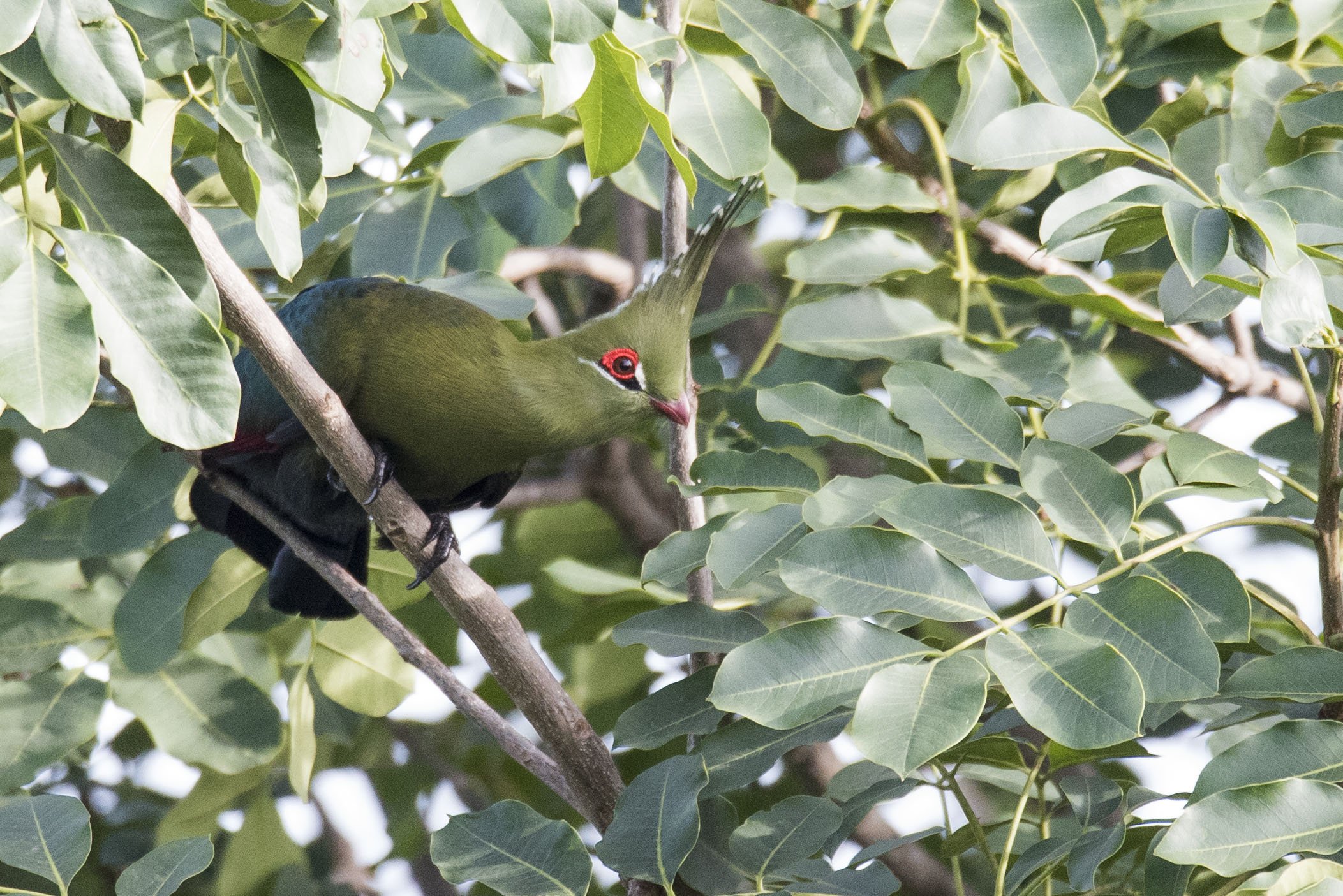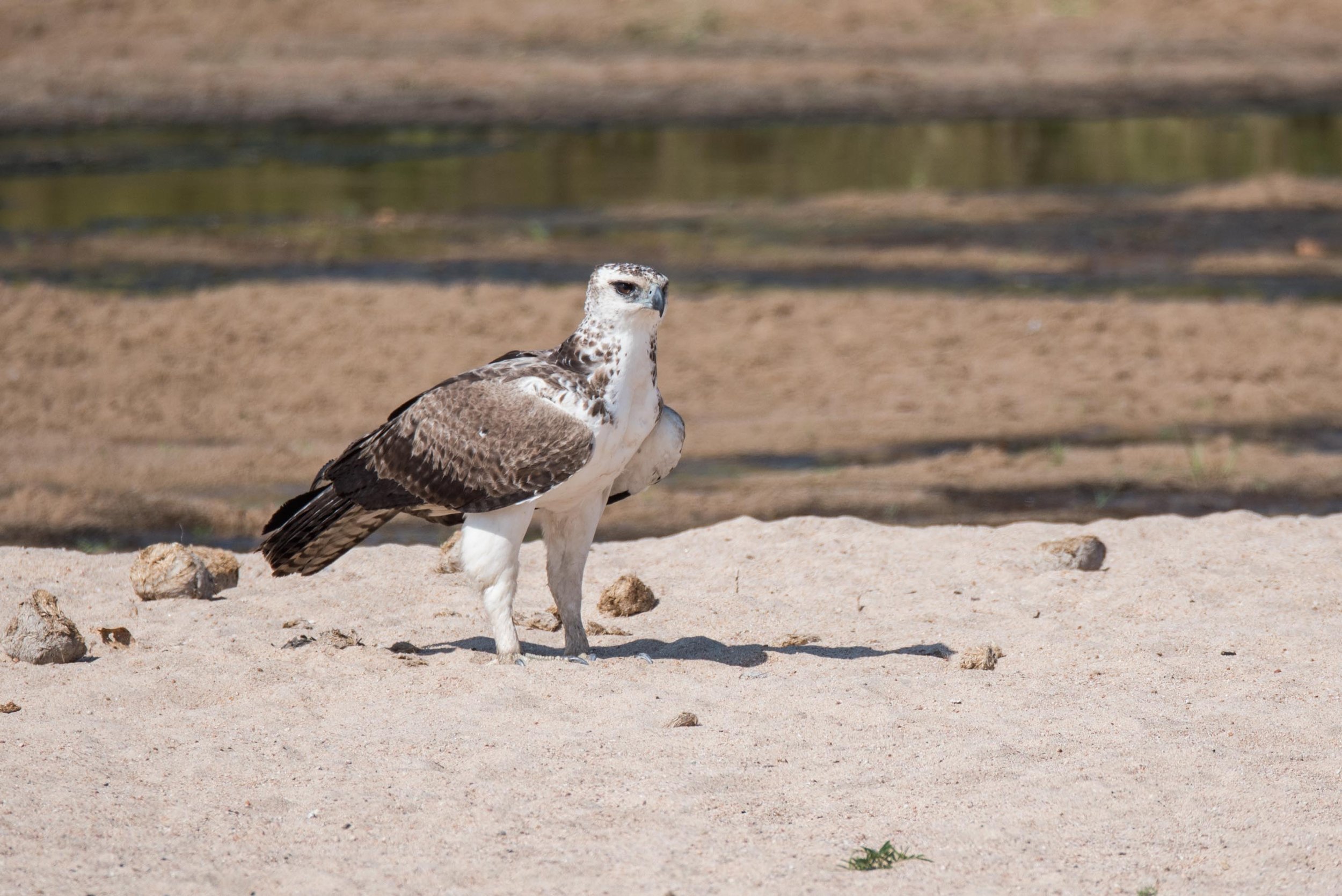
14-Day Birding Lake Victoria and Northern Tanzania
Tour Overview
Nature lovers will love northern Tanzania because it has a lot of different birds and beautiful scenery. From Lake Victoria and the Serengeti plains to Ngorongoro Crater, Tarangire River, the Lark Plains, and Arusha National Park, this 14-day birding safari will take you to some of the best birding spots in the area.
This trip is great for guests who love birds and nature, especially those who are going to Tanzania or Africa for the first time. They will get to see a lot of birds and go on classic game drives across the northern circuit.
Highlights
Explore the UNESCO World Heritage Sites of Serengeti National Park and Ngorongoro Conservation Area.
Bird species: Red-chested Sunbird, Blue-headed Coucal, Swamp Flycatcher, Northern Brown-throated Weaver, Slender-billed Weaver, Black-headed Gonolek, Black-headed Weaver, Ashy Starling, Grey-breasted Spurfowl, Usambiro Barbet, Fischer's Lovebird, Maasai Apalis, Beesley’s Lark, Yellow-collared Lovebird, Tanzanian Red-billed Hornbill, Pangani Longclaw, Gray-crested helmetshrike, Rufous-tailed Weaver, Taveta Golden-Weaver, Kilimanjaro White-eye, Red-throated Tit, Hildebrandt's Starling, Kenya Rufous Sparrow, Athi Short-toed Lark, Taita Fiscal, and many more.
Excellent photographic opportunities.
Potential to observe over 450 bird species.
Opportunities to spot over 40 mammals, like Cheetah, Leopard, Lion, Critically Endangered Eastern Black Rhinoceros, and Wildebeest migration.
Habitats: Savannah, lakes, wetlands, forests & highlands
Itinerary
-
Wednesday, February 3
Arrive at Kilimanjaro International Airport (JRO), where our team will greet you and transport you to your hotel. Take the remainder of the day to relax and unwind before embarking on your exciting adventure. Overnight in Arusha town.
-
Thursday, February 4
We will travel early in the morning with our packed lunches and spend the day touring Arusha National Park. We will start our birdwatching trip at the main entrance gate. After that, we will go to the Ngurdoto Museum and then to Momela Lakes for lunch. After that, we'll go around the lakes and then, later in the evening, we'll head up to the Fig Tree region, where we can see Mount Meru. As we explore, we'll be looking for birds like the Kilimanjaro White-eye, the Taveta and Rufous-tailed Weaver, Pangani Longclaw, Hartlaub's Turaco, Swahili Sparrow, and more.
-
Friday, February 5
Today, we're going to fly to Lake Victoria, the biggest freshwater lake in Africa, to see the Lake Zone's unique birds. There are a lot of distinctive features in this area that you can't find in the Serengeti. We'll go birdwatching around the lake in the evening. Stay the night in Lamadi, Simiyu.
-
Saturday, February 6
We will spend a full day exploring around Speke's Gulf on Lake Victoria, with a focus on the unique birds that inhabit the Lake Basin. Along the edge of the lake, we'll look for important birds like the Blue-headed Coucal, Swamp Flycatcher, Northern Brown-throated Weaver, Slender-billed Weaver, Red-chested Sunbird, and Black-headed Weaver, as well as some waders and shorebirds.
-
Sunday, February 7
Travel to Western Serengeti via Ndabaka Gate, birding on the way to Central Serengeti, and spend the night in Central Serengeti.
-
Monday, February 8
We will spend two full days birdwatching and game viewing in the central and southern Serengeti, We will look out for species, including the Grey-breasted Spurfowl, Pangani Longclaw, Grey-crested Helmetshrike, Usambiro Barbet, Fischer's Lovebird, and Maasai Apalis. Along the way, we may also encounter the iconic "Big Five"—lion, elephant, Cape buffalo, black rhino, and leopard.
-
Tuesday, February 9
Early birding in the Central Serengeti, return for breakfast, then drive to the Ndutu area in the Ngorongoro Conservation Area, where you will spend the night.
-
Wednesday, February 10 – Thursday, February 11
On the full 2-day birding and game drive, we will see the beauty of Ndutu's calving season. This is a great example of how nature heals itself. Huge groups of wildebeest, zebras, and other animals come together in the green fields to give birth.
Watch how wildebeest mothers give birth to new life and take care of their fragile calves in these nutrient-rich places. It's a time when babies are both weak and strong. Predators like lions, hyenas, leopards, and cheetahs observe and hunt as they take their first steps.
-
Friday, February 12
On this day, we commence with an early morning game drive before heading to Ngorongoro Crater. This remarkable crater, the world's largest unflooded and intact volcanic caldera, is often referred to as Africa's Garden of Eden. It is the Ngorongoro Crater, where the 2,000-foot-high walls stretch over 16 kilometers, creating a natural sanctuary that provides all the essential elements for wildlife survival.
The crater is home to a sustainable population of critically endangered black rhinos, and game drives in this area often provide encounters with all of the Big Five.
In the afternoon, we'll depart for our next destination, the town of Karatu.
-
Saturday, February 13
On this day of birdwatching, we'll go to the beautiful Endoro Falls and the well-known Elephant Caves. Elephants have naturally shaped these wonderful caves by coming to the area to extract minerals from the rock, which is high in salt. We will start our trip on a new trail near Gibbs Farm in Karatu, which is on the southern edge of the Ngorongoro Forest.
As we walk through the woods, we'll see many different animals, such as the tiny dik-dik, which is the smallest antelope in the world, and many other birds. Some of the birds to look for are Hunter's and Lynes's Cisticola, Eastern Double-collared Sunbird, Moorland Chat, Brown-headed Apalis, Mbulu White-eye, and Schalow's Turaco. We will head to Tarangire in the late afternoon for afternoon game drive and overnight stay. -
Sunday, February 14
Half a day in birding and game drive, We will look out like Ashy Starling, Hildebrandt’s Starling, D’Arnaud’s Barbet (Usambiro), Yellow-collared Lovebird, and Northern Pied Babbler. Overnight in Tarangire
-
Monday, February 15
We will head to Engikaret Lark Plains in search of the critically endangered, Tanzania endemic Beesley’s Lark. Later, we will make a stop in Oldonyosambu. During our birding exploration, we will also look out for other larks such as the Short-tailed and Somali Short-toed (Athiensis), as well as a variety of other species, including Red-throated Tit, Southern Grosbeak-Canary, Rosy-patched Bushshrike, Red-fronted Prinia, Kenya Rufous Sparrow, various weavers, such as Grey-capped Social and Baglafecht. overnight in Arusha.
-
Tuesday, February 16
On the final day of our tour, after breakfast, we will check out and depart early with a packed lunch and head out to explore the Mererani Maasai Steppes and the Shambarai Swamp. In Mererani, our focus will be on species restricted to the Maasai–Somali arid zones, many of which are endemic to northeastern Africa.
We will look out for Scaly Chatterer, Eastern Violet-backed Sunbird, Hunter’s and Tsavo Sunbird, Somali Bunting, Acacia Tit, Starlings, Black-capped Social Weaver, Pringle’s Puffback, and White-headed Mousebird, among others. Later, at Shambarai, we will search for a variety of Herons, Plovers, Teals, Terns, Gulls, Sandpipers, Coucals, and Storks.
By around 3:00 pm, we will begin our journey back, with a drop-off at your airport or accommodation. This will be our moment to bid farewell as we close our unforgettable Tanzania adventure.
Please note: Your departure flight should be scheduled for no earlier than 8:00 pm (JRO drop-off—reporting time will be approximately 5 pm). If you wish to rest and travel the following day, we will gladly assist in arranging an overnight hotel stay at your expense.
Detail Info
Tour Dates
February 3 - 16, 2027 (14 days / 13 nights)
Price
USD 7,200/- Per Person Sharing
USD 9,50/- Single Supplement
Tour Leader
To Be Annonced
Photography
Excellent
Includes
13 nights meals, water, and accommodation (twin/double accommodation)
Transport, game drives, and airport transfers
Domestic flight
National Parks and Conservation areas entry fees
Local Professional Bird guide(s) & English-speaking driver
Excludes
Tanzania Visa & Travel Insurance
Hot Air Balloon Safari
Beverages & Alcohol
Personal items like laundry service, phone calls, gifts, etc.
Optional tours, extra night in Arusha (before/after) with airport transfers.
Tip & Gratitude
Group size
4 - 12 Participants
Fitness / Pace
Moderate / Easy walk - up to 3 miles (4.8 km) per day
Terms & Conditions: https://www.nungunungu.com/terms-conditions


















